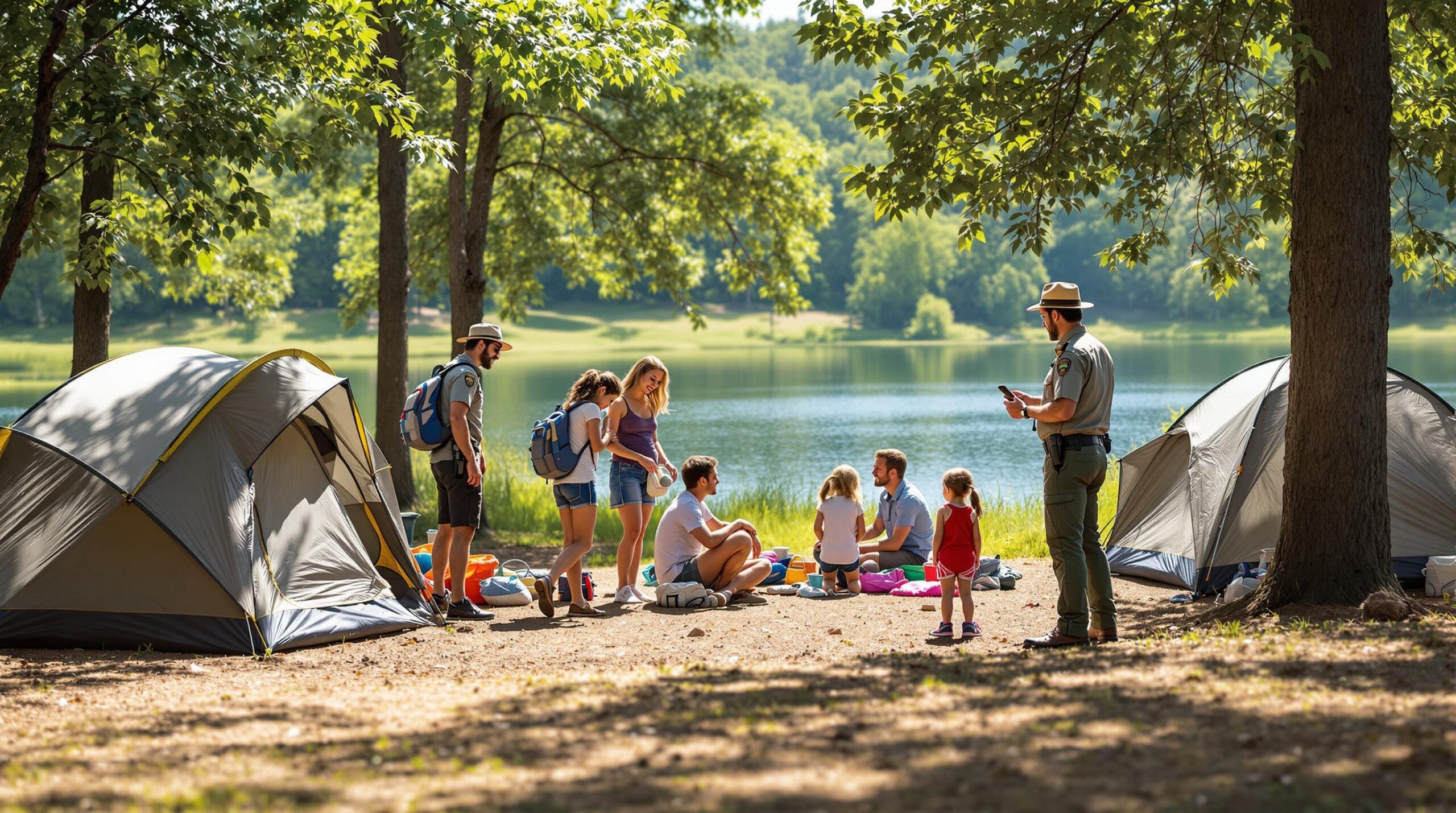Families new to overnight camping gathered at Lake Tawakoni State Park from April 11-13 to take part in a beginner-friendly workshop organized by the Texas Outdoor Family program. Guided sessions introduced participants to tent setup, Leave No Trace principles, and campfire basics, with rangers on hand to provide overnight assistance for anyone needing extra help.
The structured event cost $95 per family (up to six people), covering park entry fees, camping fees, and rental gear such as tents and cooking supplies. According to official event details a program listing, attendants were required to bring their own meals, bedding, and personal items, and they received instructions to return borrowed equipment by late morning on the final day.
Close access to potable water and electricity benefited first-time campers who desired extra convenience. Restrooms featuring hot showers provided additional comfort for individuals easing into outdoor overnight stays. Separate sessions on fire-building and campsite etiquette helped families gain confidence as they practiced these primary skills under ranger supervision.
Some participants enjoyed paddling excursions on the lake, although the notes indicated that kayaking depended on favorable weather. Evening group activities offered opportunities for social interaction, and many families participated in the Junior Ranger journal activity, which encouraged children to document memorable moments around the campground.
Pets were not allowed during the workshop, reflecting the policies outlined in the official information. Cancellations needed at least 10 business days’ notice for refunds, except in emergencies or illnesses, as stated by the program. Reservations had to be completed online or by phone, with a required cutoff on the Wednesday prior to arrival.
Organizers did not include RV-specific accommodations in this guided experience. However, Lake Tawakoni State Park maintains separate RV sites for those booking outside the workshop time frame. Families using motorhomes or travel trailers often take advantage of those larger hookups when the structured events are not a part of their stay.
Although the workshop featured several scheduled lessons and communal gatherings, additional enhancements could support an even broader range of newcomers. Many first-time or less-experienced campers benefit from multi-activity programs that focus on fundamental skills such as tent setup and fire safety. Setting aside a central space for group storytelling or free-form games can encourage community bonds and remain budget-friendly for park operators.
Another area of potential growth lies in clearer, more widely distributed educational signage that explains core principles. Placing simple, step-by-step diagrams around communal spots can reinforce new techniques families learn during formal sessions. These forms of visual guidance often reduce confusion, especially when participants practice setting up gear or cooking on their own.
Proposed digital engagement tools carry benefits for both organizers and guests. A more user-friendly online booking process might minimize last-minute cancellations by sending out automated reminders or real-time updates about changing conditions or program schedules. Customized text or email notifications that include basic cooking tutorials or lists of recommended gear could also alleviate the anxiety of prospective campers who worry about forgetting essential items.
Research noted by Camp Tekoa indicates that structured programming and community-driven environments can boost retention rates among participants. A separate reference a supporting study connects confidence-building to activities that foster independence and positive social interactions. Such findings suggest that well-organized workshops might encourage families to return for future events, creating a sustainable model for ongoing outdoor education.
Many in the outdoor hospitality sector see these hands-on exercises as a way not only to introduce novices to camping but also to expand family enrichment programs. Incorporating more communal spaces and tailored digital resources can serve as a roadmap for campground managers and glamping resorts hoping to replicate the successful structure of this workshop while addressing technological and social needs.
Officials have not released any comments about immediate modifications to this family-friendly experience. As more families seek ways to explore the outdoors safely, programmers may refine their offerings with additional technology, guided exercises, and welcoming communal areas to ensure every participant feels at home in nature.


